Members of the West African Elders Forum (WAEF)
His Excellency Chief Olusegun Obasanjo
President, Federal Republic of Nigeria (1999 - 2007)
Olusegun Obasanjo (born March 5, 1937, Abeokuta, Nigeria) is a Nigerian general, statesman, and diplomat, who was the first military ruler in Africa to hand over power to a civilian government. He served as Nigeria’s military ruler (1976–79) and, as a civilian, as president (1999–2007). Obasanjo attended Baptist Boys’ High School in Abeokuta, in southwest Nigeria, and later worked as a teacher. Unable to afford college, he joined the army in 1958 and received officer training in England. Obasanjo rose quickly through the army ranks. During the Biafra conflict (1967–70) he was appointed to head a commando division that was stationed at the Biafran front in southeastern Nigeria. The conflict ended when Biafran forces surrendered to him in January 1970. In 1975 Brigadier General Murtala Ramat Mohammed ousted General Yakubu Gowon, the military head of state at the time, but announced that he would relinquish power to civilian rule by 1979. The following year, however, Mohammed was assassinated during an unsuccessful coup attempt, and leadership passed to Obasanjo, his deputy. During the three years he headed the government, Obasanjo emerged as an important African statesman and established ties with the United States. Obasanjo followed his predecessor’s timetable for a return to civilian rule and did not run for president when elections were held in 1979. Voting was extremely close, but Nigeria’s Federal Electoral Commission declared Shehu Shagari, from the north, the winner over the strongest challenger from the south, Obafemi Awolowo, who was a Yoruba. The results were condemned by most of Obasanjo’s fellow Yoruba as well as others over allegations that the election had been rigged, but the outcome was upheld by the Supreme Court, and Obasanjo gained the respect of the Hausa-Fulani leaders in the north for handing over power to Shagari. Over the next several years, Obasanjo’s international profile rose considerably, as he held various positions in the United Nations and other organizations. A vocal critic of General Sani Abacha, who seized control of Nigeria in 1993 and established a repressive military government, Obasanjo was imprisoned in 1995 for allegedly organizing a coup against Abacha. Following Abacha’s death in 1998, Obasanjo was released. After the interim military leader, General Abdusalam Abubakar, pledged to hold democratic elections, Obasanjo announced his intention to run for president as the candidate of the People’s Democratic Party (PDP). He was declared the winner of the 1999 election with some 63 percent of the vote. There were widespread reports of fraud, however, and the results were strongly criticized by many, particularly the Yoruba, who had largely supported Olu Falae, Obasanjo’s opponent. Nigeria’s first civilian leader in 15 years, Obasanjo sought to alleviate poverty, reduce government corruption, and establish a democratic system. He also pledged to reform the military and the police. Religious and ethnic strife, however, became a central concern during his presidency, as incidents of violence mounted and as most Muslim-dominated states in the north and centre of the country adopted Sharīʿah law. Obasanjo’s harsh response to ethnic strife in the south earned condemnation. Indeed, his overall authoritative style, the corruption that was still evident among government officials, and a strong challenger—Muhammad Buhari, a northerner who was a former general and a former military head of state—were among the reasons that Obasanjo faced a shrinking power base heading into the 2003 presidential election, despite receiving the pragmatic support of leading Yoruba politicians this time around. Still, Obasanjo was elected to a second term in April 2003, winning more than 60 percent of the votes cast, but, as with previous elections, there were widespread reports of voting irregularities and allegations of fraud. In 2006 Obasanjo came under domestic and international criticism for attempting to amend the constitution to allow him to stand for a third term as president; the proposed amendment was rejected by the Senate later that year. With Obasanjo unable to run, Umaru Yar’Adua was selected to stand as the PDP’s candidate in the April 2007 presidential election. He was declared the winner, but international observers strongly condemned the election as being marred by voting irregularities and fraud. Nonetheless, Yar’Adua succeeded Obasanjo and was sworn in May 29, 2007.
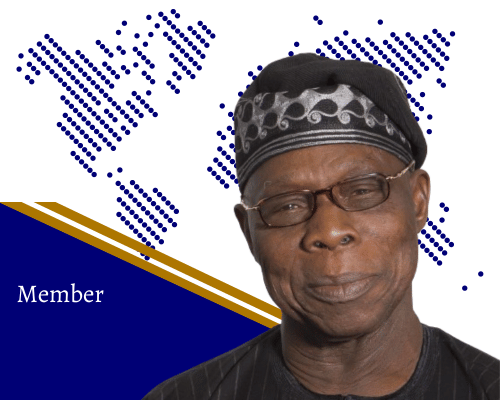
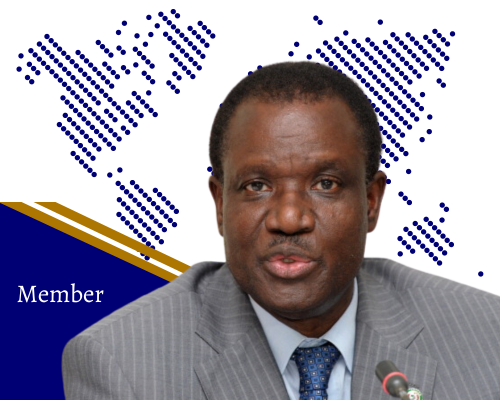
His Excellency Kadre Desire Quedraogo
Prime Minister, Burkina Faso (1996 - 2000)
Kadré Désiré Ouédraogo (born 31 December 1953 in Boussouma) is a Burkinabè statesman. He was the Prime Minister of Burkina Faso from 1996 to 2000 and Chairman of the Commission of the Economic Community of West African States (ECOWAS). On 6 February 1996, Mr. Kadré Désiré Ouédraogo was appointed Prime Minister, Head of Government of Burkina Faso, a post he held until 6 November 2000, after being successively reappointed after the legislative elections of May 1997 and the presidential elections of November 1998. From September 1996 to June 1997, he was Minister of the Economy and Finance. He was elected Member of the National Assembly of Burkina Faso in the legislative elections of May 1997. From 2001 to 2011 Kadré Désiré Ouédraogo is Ambassador Extraordinary and Plenipotentiary of Burkina Faso in Brussels with jurisdiction over the Kingdom of Belgium, the Kingdom of the Netherlands, the Grand Duchy of Luxembourg, the Kingdom of Great Britain and Northern Ireland, and the Republic of Ireland. He is also Permanent Representative to the European Union, the International Organisation for the Prohibition of Chemical Weapons and, from 2001 to 2004, to the World Trade Organization (W.T.O.). During his term as ambassador, he was chairman of the Organisation of African, Caribbean and Pacific States (OACPS) Committee of Ambassadors. During this period he chaired the Committee of Ambassadors and various working groups such as those on cotton or on the future of the OACPS groups.[1] He also put his expertise to good use in the organization of the 6th Summit of OACPS Heads of State and Government which took place in Accra in 2008. In accordance with the provisions of the Cotonou Agreement, he also participated in sending OACPS missions to various countries (Chad, Djibouti and Mauritania). From 2012 to 2016, Kadré Désiré Ouédraogo is President of the ECOWAS Commission at Abuja to Nigeria.
His Excellency Abdulsalami Abubakar
President, Federal Republic of Nigeria (1998 - 1999)
Abdusalam Abubakar (born June 13, 1942, Minna, Nigeria) is a Nigerian military leader, who served as head of state (1998–99). Hailing from the middle belt of the country, Abubakar joined the army in 1975 and received his formal military training in the United States. He commanded Nigeria’s contingent of United Nations peacekeeping troops in Lebanon in 1981. By the late 1980s he was a senior officer and in 1993 was named defense chief of staff by General Sani Abacha, who became Nigeria’s military ruler in that year. Olusegun Obasanjo and Gen. Abdusalam Abubakar Outgoing Nigerian president General Abdusalam Abubakar (second from right) handing the government's seals to President Olusegun Obasanjo (left) at the swearing-in ceremony, Abuja, Nigeria, May 29, 1999. Following the sudden death of Abacha in June 1998, Abubakar was sworn in as Nigeria’s head of state. Like many other Nigerian military leaders, he promised a return to civilian government, but, unlike all except Olusegun Obasanjo, he kept his promise. Although Abubakar dissolved the political parties Abacha had established (Abacha had been a presidential candidate for every party), he did establish a plan for multiparty elections, and he set May 29, 1999, as the swearing-in date for the new civilian president. Confidence in Abubakar’s plan was strengthened when Nobel laureate Wole Soyinka returned home after four years in self-exile. As promised, presidential elections were held in January 1999, and Abubakar handed the government over to the winner, Obasanjo, on the promised date. He retired from the military and returned home to Minna.
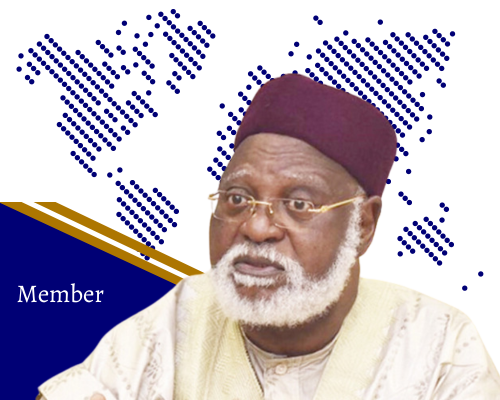
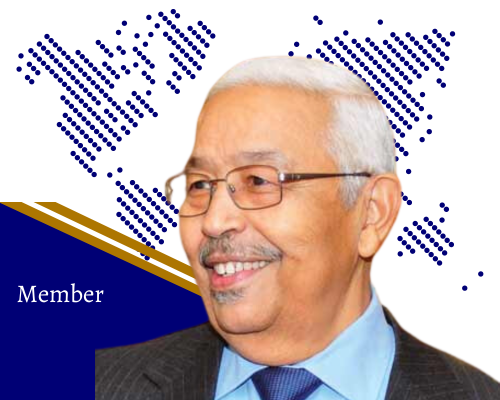
His Excellency Pedro Pires
President, Cape Verde (2001 - 2011)
President, Cape Verde (2001 - 2011)
Her Excellency Madam Ellen Sirleaf Johnson
President, Republic of Liberia (2006 - 2018)
Ellen Johnson Sirleaf (born October 29, 1938, Monrovia, Liberia) is a Liberian politician and economist who was president of Liberia (2006–18). She was the first woman to be elected head of state of an African country. Sirleaf was one of three recipients, along with Leymah Gbowee and Tawakkul Karmān, of the 2011 Nobel Prize for Peace for their efforts to further women’s rights. Sirleaf served as assistant minister of finance (1972–73) under Pres. William Tolbert and as finance minister (1980–85) in Samuel K. Doe’s military dictatorship. She became known for her personal financial integrity and clashed with both heads of state. During Doe’s regime she was imprisoned twice and narrowly avoided execution. In the 1985 national election she campaigned for a seat in the Senate and openly criticized the military government, which led to her arrest and a 10-year prison sentence. She was released after a short time and allowed to leave the country. With more than 15,000 United Nations peacekeepers in the country and unemployment running at 80 percent, Sirleaf faced serious challenges. She immediately sought debt amelioration and aid from the international community. By late 2010 Liberia’s entire debt had been erased, and Sirleaf had secured millions of dollars of foreign investment in the country. In addition, she established a Truth and Reconciliation Committee (TRC) in 2006 to probe corruption and heal ethnic tensions. Ironically, in 2009 Sirleaf was mentioned in one of the TRC’s reports, which recommended that she, along with a number of others, be banned from holding elective office for 30 years for having supported warring factions in the civil war. In Sirleaf’s case, she had supported Taylor for a time very early in the war. The report’s recommendations were not binding, though, and she was buoyed by a widespread demonstration of both domestic and international support. Efforts toward eradicating corruption—a significant problem that Sirleaf had pledged to end—included the creation of the Anti-Corruption Commission in 2008.
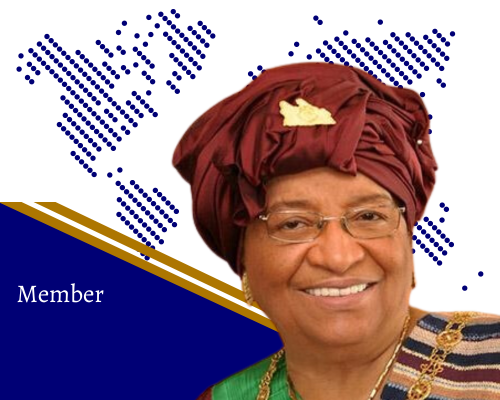
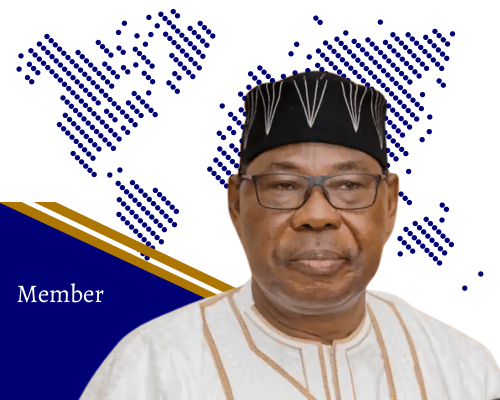
His Excellency Thomas Boni Yayi
President, Republic of Benin (2006 - 2016)
Thomas Boni Yayi (born 1 July 1951) is a Beninese banker and politician who was the president of Benin from 2006 to 2016. He took office after winning the March 2006 presidential election and was re-elected to a second term in March 2011. He also served as the chairperson of the African Union from 29 January 2012 to 27 January 2013. Boni stood as one of 26 candidates in the March 2006 presidential election.[3] The sitting president, Mathieu Kérékou, had been a dominant force in the politics of the country since the early 1970s and there were serious doubts about him agreeing to allow a transition of power. Boni surprised many by earning 35.8% of the vote in the first round as an independent candidate.[3] The main parts of his campaign were to improve governance, stimulate the private sector, improve educational opportunities for women and modernize the agricultural sector.[1] His closest competitor was Adrien Houngbédji of Soglo's Party for Democratic Renewal who received 25 percent. In the runoff between Boni and Houngbédji on 19 March 2006, Boni won with almost 75% of the vote.[3] He took office on 6 April 2006. The 2006 election saw high voter turnout and was considered free and fair by independent election observers